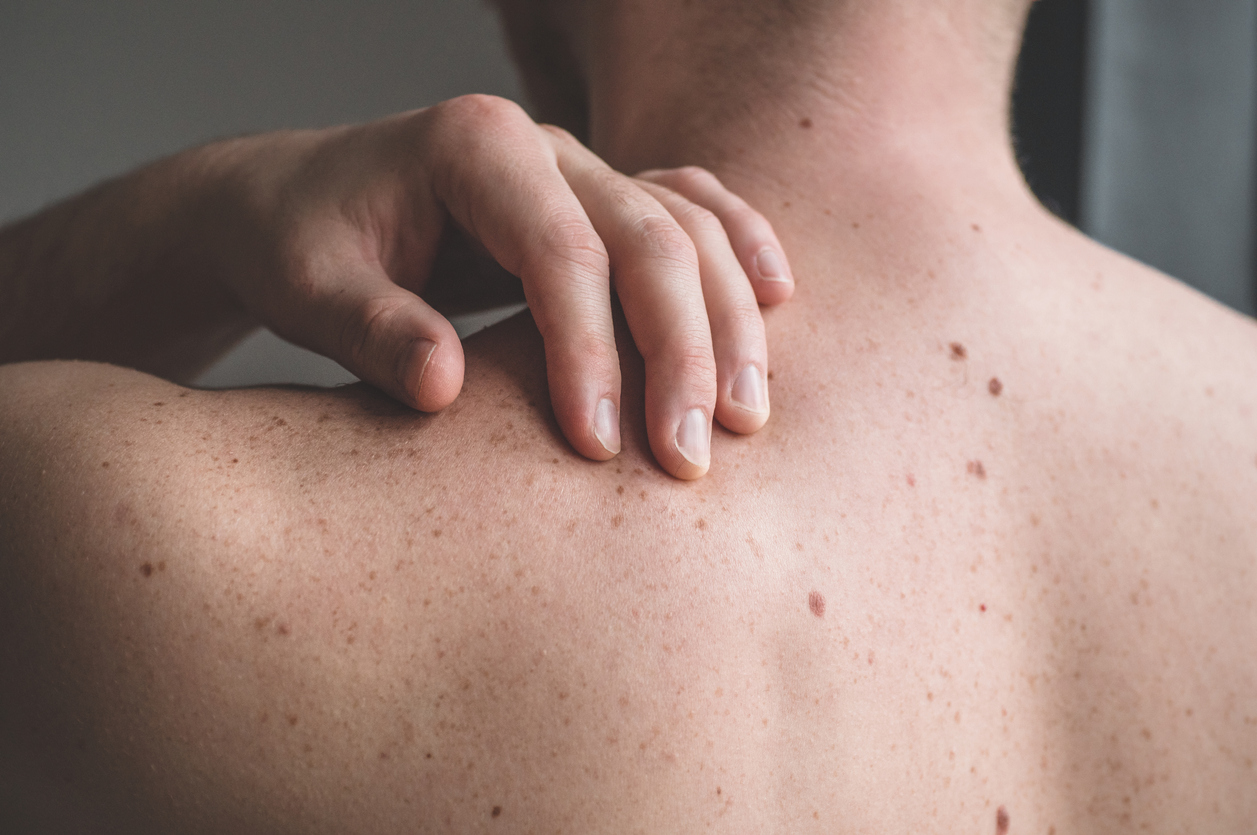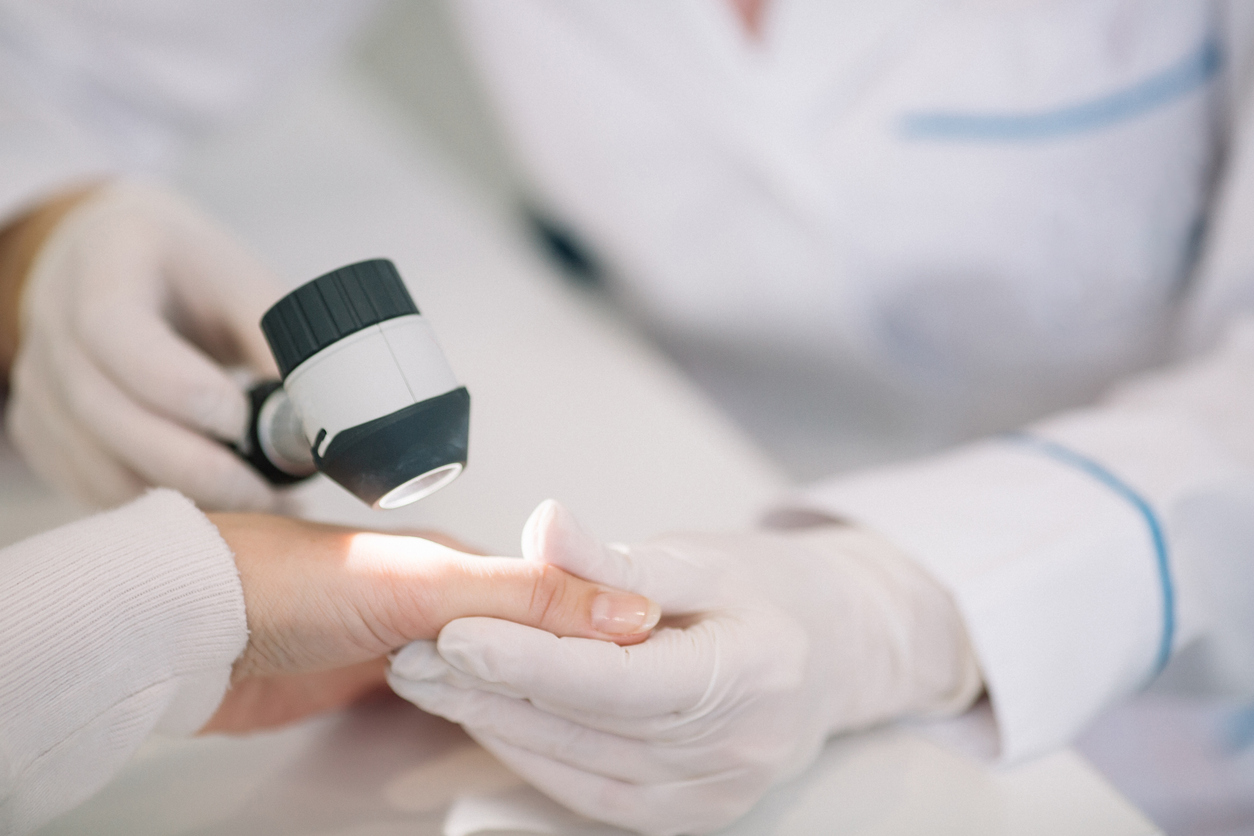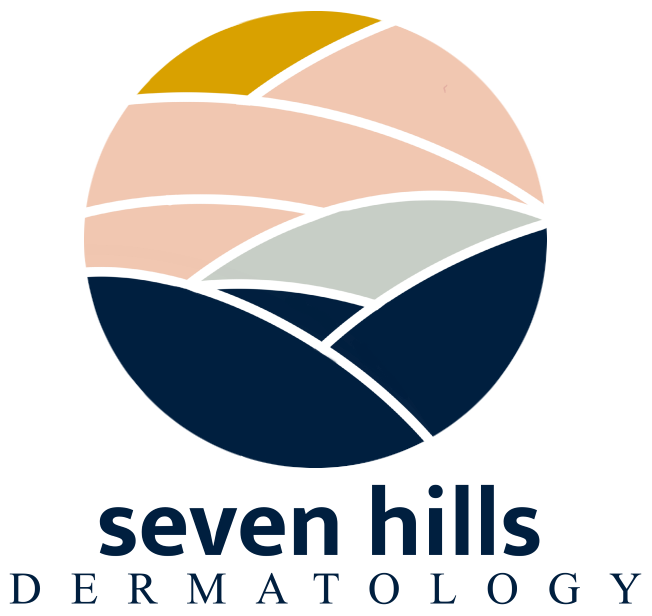Skin Cancer
in Lynchburg, VA
Skin Cancer
in Lynchburg, VA

Types of Skin Cancer
It is well known that sun damage to the skin has a cumulative effect. Over time, the accumulation of sun exposure causes the DNA in skin cells to mutate or change, growing out of control and forming a mass of cancer cells.
Skin cancer is the most common type of cancer. If you have been diagnosed with skin cancer, it is critical to obtain an accurate diagnosis of the type of cancer so that the treatment options will be the most effective. The American Cancer Society recognizes five types of skin cancer including:
- Basal and Squamous Cell Skin Cancers
- Melanoma Skin Cancer
- Merkel Cell Carcinoma
- Lymphoma of the Skin
- Kaposi Sarcoma
Skin cancer needs to be removed. Different surgical techniques are used depending on the how large the cancer is and the type of cancer. Most of these skin cancers can be removed in the office with local anesthetic. Dr Bohrnstedt has extensive training in the surgical removal of skin cancers. He is committed to finding the best solution his patients’ and will work with them to provide the best treatment available.
Basal Cell Carcinoma
Of all of the skin cancers, the basal cell carcinoma (BCC) is the most common. Approximately 8 out of 10 skin cancers are basal cell carcinomas. These cancers are likely to develop on sun-exposed areas, especially on the head and neck. They are slow-growing, and it is rare that basal cell cancer spreads to other parts of the body. However, if left untreated, it can grow into nearby areas such as the bone and other tissues beneath the skin.


Squamous Cell Carcinoma
Squamous cell carcinoma (SCC) occur on the top-most layer of skin and most often in sun-exposed areas such as:
- Face
- Ears
- Back of hands
- Lips
- Neck
Squamous cell cancers occur in approximately 2 out of 10 skin cancer cases, making it less common than basal cell cancer; but it is more likely to grow deeper into the layers of skin and more likely to spread to other parts of the body than basal cell cancer.
Basal Cell & Squamous Cell Cancer Prevention Guidelines
Basal cell and squamous cell skin cancers are almost always curable when detected and treated early; however, it is ideal to prevent them in the first place. The Skin Cancer Foundation suggests making these sun safety habits part of your daily health care routine:
- Spend the majority of your time in the shade, especially between 10 AM and 4 PM.
- Do not burn.
- Avoid tanning and never use UV tanning beds.
- Use clothing to protect your skin from the sun, including a broad-brimmed hat and UV-blocking sunglasses.
- Use a broad-spectrum (UVA/UVB) sunscreen with an SPF of 15 or higher daily. For extended outdoor activity, use a water-resistant, broad- spectrum (UVA/UVB) sunscreen with an SPF of 30 or higher.
- Apply sunscreen to your entire body 30 minutes before going outside. Reapply every two hours or after swimming and/or excessive sweating.
- Keep newborn babies out of the sun. Sunscreens should be used on babies over the age of six months.
- Perform a self-skin examination from head-to-toe every month.
- See your doctor or a dermatologist for yearly skin exams.


Surgical Removal of Basal & Squamous Cell Cancer
Surgery is the treatment of choice for these common types of skin cancer. Techniques for removal may vary depending on size and the type of cancer diagnosed.
Curettage and electrodesiccation: This is a common treatment for small basal cell carcinomas. It may need to be repeated to make sure all of the cancer has been removed.
Excision: Excision (cutting the tumor out) is often used to remove basal cell carcinomas, along with a margin of normal skin. The excision is also an effective way to have a common skin cancer removed.
At Seven Hills Dermatology, we offer the latest in surgical techniques to increase the patient’s comfort and improve the patient’s cure rate.
